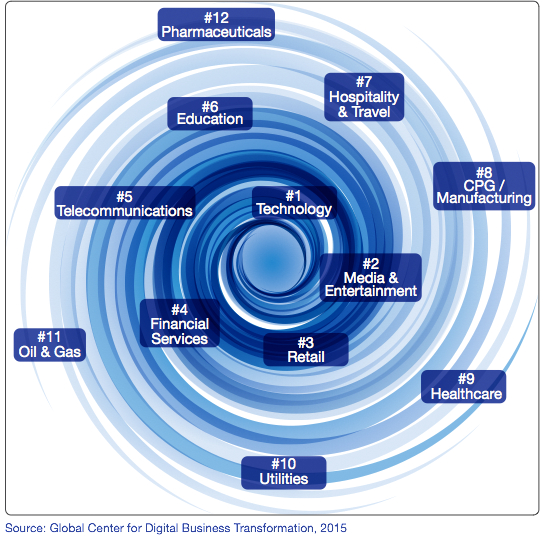Everyone knows what the terms „digital“ and „disruption“ stand for. But, what if you combine both – „digital disruption“, what does it mean? How is digital disruption affecting traditional business models, and how can organisations respond to minimise the risks and maximise the opportunities presented by this alteration? These questions emerge if you talk about digital disruption. According to Professor Richard Hall, Associate Dean Management Education at the University of Sydney Business School, digital disruption could be understood as:
“The ability for digital technology to disrupt traditional ways of doing business, by creating value and interacting within and beyond the organisation, means there is this capacity to completely remake entire sectors of business, really quickly.”
In other words, digital disruption creates new business models and changes the way companies traditionally operate based on the implementation of new digital technologies. Meanwhile digital innovations have an effect on the current value proposition of organisations across nearly every industry.

Digital Disruption by Industry – Which industry is affected first? (https://www.imd.org/uupload/IMD.WebSite/DBT/Digital_Vortex_06182015.pdf, p. 6)
According to the opinion of experts of the Global Center for Digital Business Transformation digital disruption has the potential to reshape markets faster than perhaps any force in history. With new business models digital disrupters – for example digital start ups – could quickly steal many customers from established organisations. An example how a digital innovation could disrupt a traditionall business model is WhatsApp, with it’s overwhelming impact on the global text messaging market. In any case WhatsApp is one of the main causes why nobody uses Short Message Services (SMS) anymore to communicate.
But why is digital disruption so powerful and risky at the same time?
Digital disruptors are particularly dangerous because they grow enormous user bases ostensively overnight, and then are flexible enough to convert those users into business models that threaten incumbents in numerous markets. The reason why digital disrupters are so successful today is because they build better customer experiences faster and cheaper. To survive, traditional companies definetly have to adopt and deploy digital technologies and business models within an even shorter period of time to improve performance quantifiably. At the same time digital disruption force organisations to overthink their core business. Organisations using the outdated methods are left behind and their business gets disrupted.
An expert in the area of digital disruption is Thales Teixeira. He is professor at the Harvard Business School and his research domain comprises advertising, digital marketing and the economics of attention. At the online marketing rockstars conference the internet innovators talked with him about what digital disruption means. Such as, what the differences are between the first and the second wave of digital disruption; moreover, if some branches are immune against the repercussions of digital disruption. Have fun watching the video.
For more information about digital disruption have a look at the the whitepaper „How Digital Disruption Is Redefining Industries“.
Sources:
https://searchcio.techtarget.com/definition/digital-disruption
https://www.b2bmarketing.net/news/archive/news-78-uk-businesses-are-experiencing-digital-disruption
https://www.hcamag.com/hr-news/digital-disruption-hr-leaders-under-threat-186027.aspx

